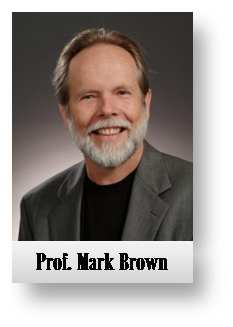
International Course on Environmental Accounting and Management 2018:
Summer Workshop on Ecological Modelling
环境核算与管理国际课程:生态模拟2018暑期工作坊
July 9-13, School of Environment, BNU
 |
Mark Brown is a professor of Environmental Engineering Sciences and director of the Center for Environmental Policy at the University of Florida. He is the Academic Master of 111 Plan in BNU. His interests in research and education are centered on several areas that deal with the interface of humanity and environment including, systems ecology, ecological engineering, ecological economics, environmental planning, environmental policy, restoration ecology and wetlands ecology. Mark Brown教授,佛罗里达大学湿地与环境政策研究中心主任,北京师范大学高等学校学科创新引智基地(111计划)学术大师。师从系统生态学创始人H.T. Odum,主要研究领域为能源与环境政策、生态系统服务评估、湿地生态修复等方面,已发表和出版国际期刊文章和著作140余篇/部,文章引用5600余次(Google Scholar),H指数35。国际能值协会创始人,曾担任美国生态工业协会主席。 |
 |
Francesco Gonella is a Professor at Ca’ Foscari University of Venice, Italy. He was Director of the International School on Emergy Accounting, Venice 2013, 2015 and 2018. Research interests include nano-structured glasses, environmental Physics, systems thinking, and higher education. Francesco Gonella,威尼斯Ca Foscari大学全职教授,担任国际能值课程主任。研究兴趣包括环境物理学、系统思维及教育等。 |
|
助教Course assistant: Silvio Viglia (University of Florida) Gengyuan Liu (Beijing Normal University) 课程报名Course registration: 报名信息请发送到 liugengyuan@bnu.edu.cn。 后续课程信息将由邮件通知。 Please send email to liugengyuan@bnu.edu.cn to get the follow-up information. 课程信息: Lecture 1: Systems Perspective; Systems language Discussion 1: What is a system? What is systems thinking? The macroscope. General Systems Theory Discussion 2: Thinking in systems: the Systems zoo Lecture 2: Systems diagramming, Numerical evaluation Discussion 1: Complexity, Stocks & Flows, Interconnections, Feedback, Reducing complexity through aggregation Discussion 2: Thinking in systems: stocks, flows and feedbacks Lecture 3: Equations and calibrating models, flows, storages and time Discussion 1: Dynamic behavior, System dynamics, Purpose, Non-Linear relationships Discussion 2: Unpredictability of systems behavior 1: Chaos and chaotic systems Lecture 4: Simulation using Discussion: Unpredictability of systems behavior 2: Chaos and chaotic systems Assign Simulation Exercise Lecture 5: General System Principles – Energy, Emergy, Exergy & Thermodynamics Discussion 1: Hierarchy theory, Self-organization, Lotka’s maximum power, Zipf ’s least effort. Discussion 2: Entropy and the Second Principle of Thermodynamics Lecture 6: Complexity-Complex Models Discussion 1: Complexity, Chaos, Complex adaptive systems Discussion 2: Case study: emergy and health structures Lecture 7: Complex Models-Models of Economic Interface Discussion 1: Growth, Steady State, Pulsing Paradigm Discussion 2: Case study: emergy and artistic glass sector Assign Country Project Lecture 8: Production & yield; Autocatalytic Modules Discussion 1: Autocatalysis, Malthus Discussion 2: Case study: emergy and highways infrastructures Lecture 9: Design Elements Discussion: Lotka-Volterra, Loops, cycles, series, control, oscillation Lecture 10: Ecosystem Concepts-Ecological Principles Discussion: Diversity /richness – stability, succession, pulsing, persistence, Island Biogeography. |
